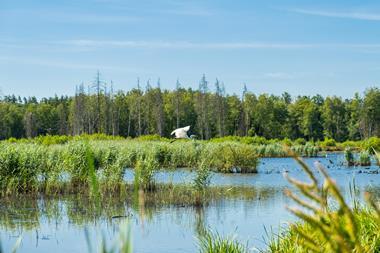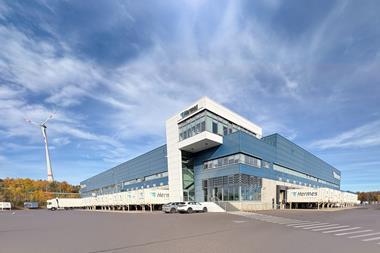The head of Oxford Properties outlined the Canadian pension investor’s plans to boost its exposure to Asia-Pacific at the IPE Real Estate Global Conference & Awards in Copenhagen, saying a different approach was needed than for North America and Europe – and that it could take a decade to build the operations it needed.
In a live interview with Liam Kennedy, editorial director at IPE, Michael Turner, president of Oxford Properties, said: “You are right that APAC will be around 20% of our balance sheet – I think we are going to be in a lot more partnerships there and we’re going to own interests in businesses, as opposed in Europe and North America where we own the entire business outright.”
Turner said Oxford Properties, the real estate subsidiary of Ontario Municipal Employees Retirement System (OMERS), had to be respectful and humble of the region in its expansion strategy there.
“We are newer and it might take us a decade to really have the capability that we want to have there in the long term,” he said.
Oxford Properties opened its first office in Singapore in 2018 – and subsequently bought the Australian multi-billion-dollar Investa Office Fund – its largest single transaction anywhere.
Australia would continue to be a market of focus for the Canadian institutional investor, Turner said.
“Clearly Australia benefits from being in the region. It’s not core Asia, but benefits because of the growth of south east Asia and China,” Turner said.
“We are trying to figure out and are down the path on how we get a platform in India,” he said.
“I would say the pandemic has slowed that down; we can’t get our teams on the ground we can’t travel as freely as we would like,” Turner said at the event held physically in Copenhagen as well as online.
On the topic of the office sector, Kennedy asked Turner about the extent to which Oxford Properties’ staff had returned to work in its offices since the start of the pandemic.
“We’re going to see people coming back to the office, they’re going to do it differently, but this work-from-home-forever – I just don’t see it as the future for our organisation, or the majority,” he responded.
More generally, “I don’t think the city is going to lose its importance”, Turner said. “Are we going to see greater growth in some emerging hubs faster than others? So, for example, is the US south and mountain region growing faster than the north east and New York City? Yes.”
But large cities remained beacons for attracting talent, culture and capital, he added. “Coming out of the pandemic, we’re not going to be shorting London, if you will. We still believe in places like Berlin and London.
“We have been selling offices for many, many years – it’s a smaller part of the our balance sheet than some of the other sectors – but we still think there’s a great business to be had in investment in office assets.”













